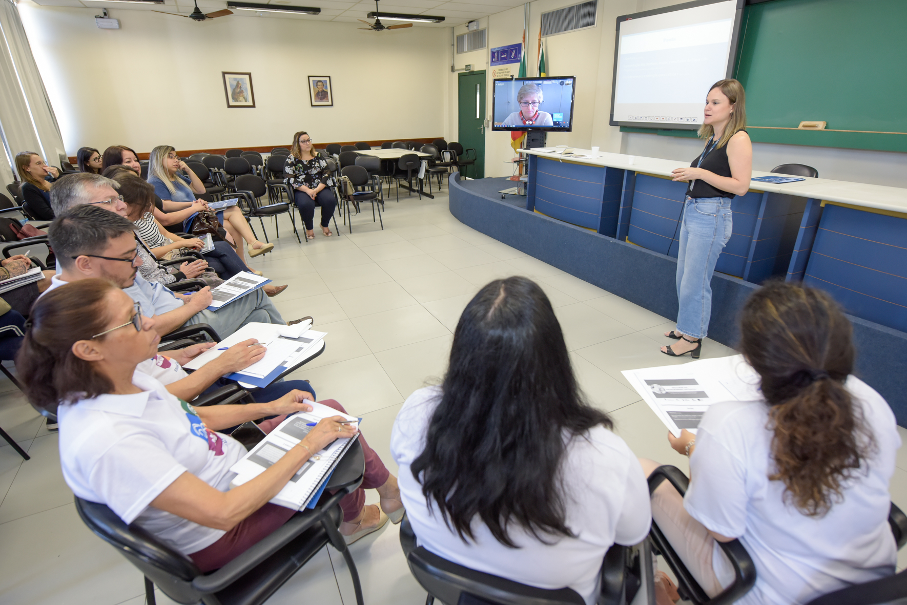Study carried out with PUCRS and Universidade do Minho looked at provision of services to disabled children aged 0-3 in Viamão

The data were collected and analyzed in partnership with Universidade do Minho | Photo: Bruno Todeschini
Research developed by the Graduate Program in Education (PPGEdu) of the School of Humanities of PUCRS, has mapped out the network of services provided to disabled children aged 0-3 and found that these kids are not given priority in the area of education. The study has shown that in this area, in particular, not much effort has been made to these children, especially when they not regularly attending school, once the municipal schools do not cater to the needs of individuals at this age range. The study looked at education and other areas as well.
As for social assistance and health services, they are given a bit more attention. However, services are geared towards rehabilitation rather than socioeducational inclusion. The program is coordinated by Dr Marlene Rozekand Gabriela Dal Forno Martins and relied on the support of the Municipal Departments of Education, Health and Social Assistance of Viamão. These departments provided the number of disabled children born from 2015 to 2017, as well as their living conditions.
The data were collected and analyzed in partnership with the Universidade do Minho (Uminho), Portugal, and brought about the Programa de Intervenção Precoce na Infância (Program for Early Intervention in Childhood), to be carried out in the coming two years. The professor and researcher of the Centro de Investigação em Educação (Center for Education Studies), at Uminho, Ana Maria Serrano, gave online assistance. “The program is intended to improve the process of socioeducational inclusion of disabled children aged 0-3 born in Viamão. After this experience, we want to produce insights for the development of public policies in this area”, adds Marlene.
The Program
The Program for Early Intervention in Childhood will be implemented in 2019. It will be coordinated and carried out by the team of the Multidisciplinary Group of Studies and Research into Learning and Inclusive Processes (NEPAPI), of PUCRS, in partnership with the Department of Inclusive Policies of the Department of Education of Viamão. Throughout the year, a training program for about 50 professionals from the areas of Education, Health and Social Assistance of the city will be offered. Professor Ana Maria Serrano and pediatrician at Hospital Pediátrico de Coimbra, who is also a member of the National System of Early Intervention in Childhood (SNIPI), José Boavida, will be coming to Brazil to provide training to early intervention teams of Viamão. The Portuguese policy is a reference in Europe and looks at children aged 0-6 with special educational needs.
According to the Program, families and their disabled babies will be identified and screened in order for them to be sent to support groups. It also includes data collection. As 50 families are expected to join, four different groups will be organized in order to promote the exchange of experiences and strengthen the competences of families for the development of their babies. Other actions involving the families are also expected, such as home visits to enrich the learning experiences of children in their natural contexts, from a family-centered perspective.